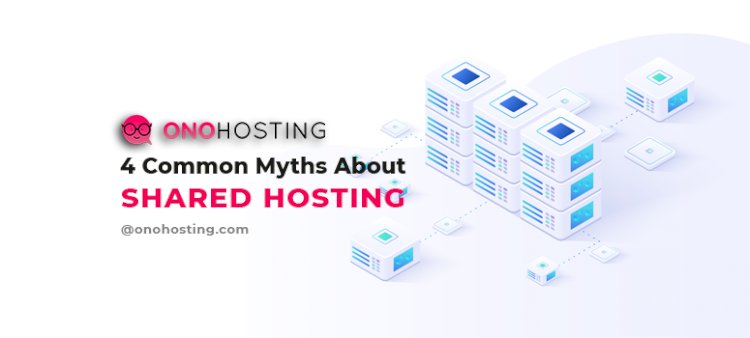4 Common Myths About Shared Hosting
4 Common Myths About Shared Hosting

1: Free Hosting is that the Same as Shared Hosting
When you’re unaccustomed buying hosting services, the provision of free hosting may be
confusing. Every free hosting service you encounter is shared hosting, but that doesn't mean
that each one shared hosting is free, nor does it mean that shared hosting is low-value hosting.
As for whether you ought to cash in on free shared hosting: the solution may be a definitive
“No.”
As you will already know, whether or not something is free, there’s usually a hidden cost.
within the case of free hosting, the provider must monetize its services somehow. This usually
comes within the type of ads on your web hosting India, which are intrusive, and you won’t
make the most of them in any respect.
A full-featured shared hosting plan only costs some dollars over free hosting and offers far
more value. When you’re running a small business, you’ll want to avoid the co-branding and
ads that appear on a website with free hosting.
2: Shared Hosting Lacks Scalability
The mistaken assumption is that, on a shared hosting plan, as soon as your business grows even a touch, you’ll attain your hosting resources. There’s a fear of either being cursed with insufficient storage, RAM, and bandwidth to run your site, or having to buy a wholly new hosting service.
In reality, shared hosting is extremely scalable. the simplest providers offer different levels of managed shared hosting plans to handle the requirements of site owners who want to grow their website and their business. a replacement business owner can initially select the smallest amount of expensive shared hosting plan and scale it up to the following level as their business and website grow.
3: Shared Hosting isn't Secure
You may have heard that shared hosting isn't secure compared to other sorts of hosting. That’s not true—in fact, shared hosting is usually provided by employing highly secure, enterprise-level server resources. Shared hosting plans will usually offer a server firewall, monitoring, and intrusion detection. Additionally, site owners can typically make the most of DDoS attack prevention, network monitoring, and other services that help keep their site secure, and every one of this carefully managed by the hosting provider.
Can dearer hosting be more secure? Yes, if you have got the knowledge and resources to require a rather more hands-on approach to website security, but if you don’t, choosing a managed VPS hosting plan could lead to a less secure site than it might get on a well-managed India reseller hosting.
4: With Shared Hosting, you'll Expect Downtime
The best shared hosting providers deliver on their promise of reliable service, offering uptime guarantees of 99% or more. They’ll provide 24/7 customer support so you'll be able to contact someone immediately if you run into issues.
Even the simplest providers can experience service problems—what separates them from other hosting companies is how they respond.
With free hosting or a service that’s managed by a less established provider, the company’s inability to quickly correct problems is sometimes the explanation your website is going to be down for extended than it should be.
The main point is, while it’s true that site owners who choose low-end shared hosting often experience downtime, shared hosting isn't responsible. The matter stems from the hosting provider’s inability to keep up and manage their servers.
























